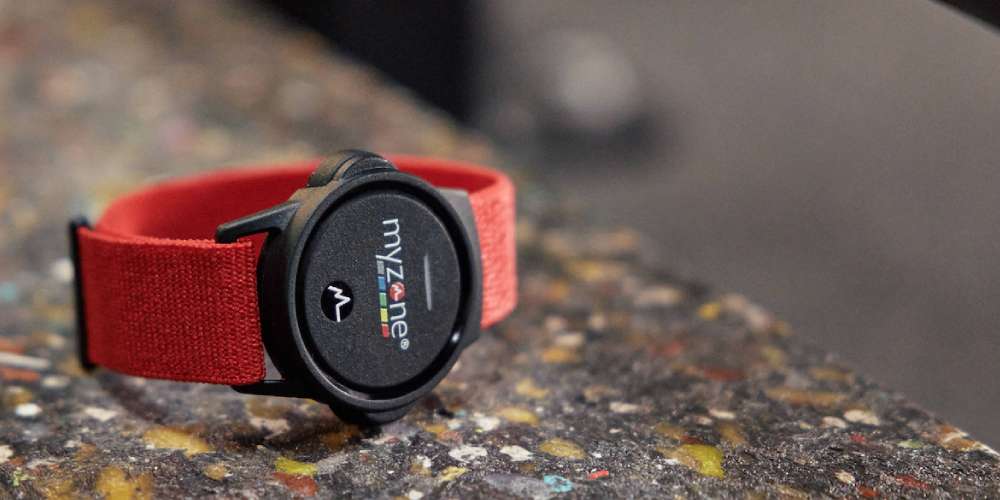Swimming, winning, adaptive training, and Eurovision
The variables of motivation, mental health, and access to movement, are difference-makers for everyone. But it makes no difference whether you’re a Paralympian, British Champion, or someone just starting out on their fitness journey. Here’s why…
As well as being a health and sports performance nutrition coach, Rebecca Guy is a swimming sprint freestyler, earning a silver medal at the British Championships.
Joana Calado’s muggle job [her words] is a data scientist, meaning she's incredibly familiar with the intricacies of heart rate data. She’s also a Paralympic swimmer, having competed at the Beijing 2008 and Rio 2016 Paralympics.
Here we explore everything from initial inspiration to the benefits of Eurovision, and how mindset and motivation play a big part of physical activity habits every day.
Early introductions to physical activity
Bex: My name’s Rebecca, or Bex. My favourite sport is swimming. In the gym I like functional fitness class-based movement where I get told what to do and it’s a bit of fun… With loud music.
Jo: My name’s Joana, but people call my Jo. My background is predominantly swimming, but nowadays I do any movement that’s just fun and playful, or community-based.
My current focus is to level up on Brazilian Jiu Jitsu, and mountain bike my way across some of the beautiful trails that the South West has to offer – trying to keep it varied with an element of outdoors and socialising.
Bex: Movement was a big part of my upbringing and holds positive memories. My parents took me to various activities, from trampolining to dance, and it was always fun and sociable. It’s always about enjoyment for me. I enjoy movement.
It’s a big part of my routine, it encompasses every aspect of my health: physical, mental, and social. Movement is how I meet and connect with others.
Jo: For me, my dad is very active. He runs, plays basketball and football. When he found out that he had a daughter with a disability, he just wanted to make sure I could participate in sports and provide that same experience.
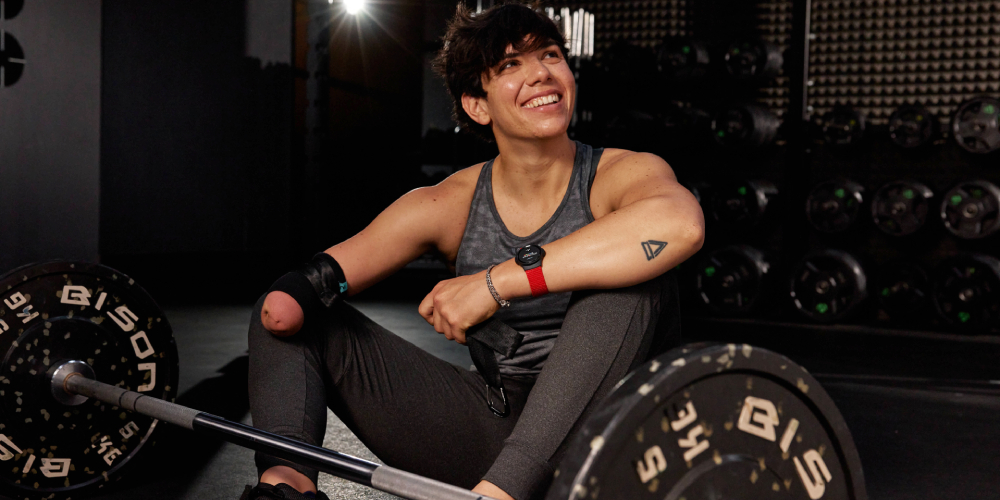
Since I was a very young kid, he just made sure that I could unlock all the different movements and participate. I’ve always done a lot of different sports because I feel like it connects me to my dad and brings me closer to his identity.
What motivates you to move?
Bex: What motivates me to move is the feeling. I don’t feel as good if I don’t move – it is as simple as that. I have a long history with swimming but, simply put, sometimes I train to race and sometimes I swim for pure joy.
A technical sport like swimming brings me a sense of achievement. There are so many ways to measure progress and celebrate what my body can do.
Jo: Having been born with a limb difference, I have been faced with numerous physical, social, and attitudinal barriers that have affected my confidence and ability to fully participate in exercise and sport.
It can easily lead to staying at home. Over the years I have been fortunate to find places and people that were willing to join me on this journey of discovery. I’m now at a point where any form of movement feels like an opportunity to experiment.
The challenge and creativity to unlock moves excites me – and those around me. We’re all figuring things out and we all have obstacles to enjoying movement.
My latest project has been Brazilian Jiu Jitsu, one bruise at a time. It’s a good example of a sport where re-thinking moves is part of the culture and helps to raise everyone’s game.
Reorg charity is a good example of a project widely supported by the entire community aiming to make Brazilian Jiu Jitsu more accessible to all.
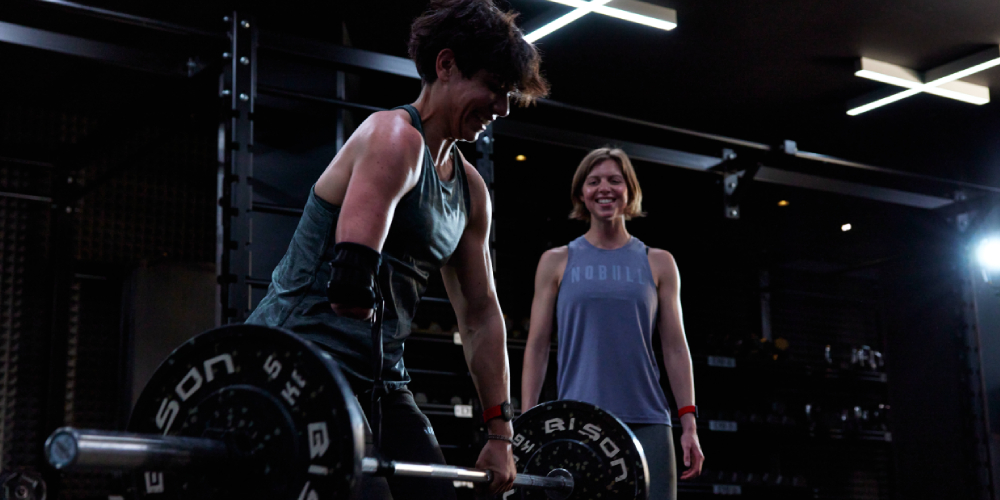
Climbing is another sport I do that is on a collective journey. From physical access, to training up staff, to route setting – charities such as the UK Paraclimbing Collective and Grit Collective make it possible for anyone to rock up to a climbing centre and have the opportunity to be shown the ropes.
I feel that everyone with a disability is an activist for each other, because we’re all figuring things out at the same time, together with the facility or the sport that is trying to embrace us. It’s definitely been a journey, but it feels like a collective journey.
The invisible costs of disability and exercise
Jo: When you live with a disability, there’s invariably an additional cost to any form of physical activity – whether it be the logistics on getting there, the specialised equipment and facilities to participate or just the attitudes of those around you.
I felt this most recently, with mountain biking. While an able-bodied person can enjoy a ride for £12-per-hour on a local trail, my cost of entry to participate “safely” could be a minimum of £3000.
In this case, dual brakes, grip shift gears and steering damper make it a lot safer for me to enjoy the joy of riding instead to fearing for my life on every corner!
With any sport, there are all these other costs that we absorb that are invisible. It’s very important that we have visibility and broader understanding of what these are, so we can all figure out more accessible ways, and affordable ways, so that everyone can enjoy and fully participate in sport. It can be quite elitist, otherwise.
Overcoming barriers to moving more often
Bex: I would say the main barrier that prevents me from moving is just juggling the business of life. Or living in an urban environment, plus the weather is often shite. They are genuine barriers, because when you have deadlines, and as so many of us are working from home, it’s really easy to not move.
If you have meetings in the morning and meetings in the evening, how do you get out? You’ve got to prioritise it. It’s easy to get stuck in a bit of a rut, and then it just escalates. Modern life encourages disconnecting from what your body needs.
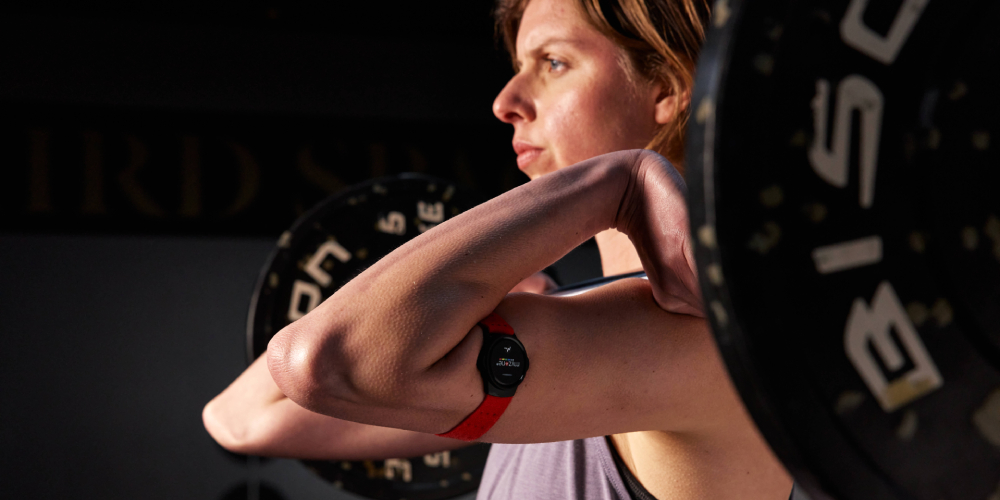
Jo: I definitely found in the past that my main barrier affecting my consistency with movement has been not feeling safe or accepted in a certain community. It can mean that you’re wanting to be part of a community but feeling like you constantly have to put on a brave face before you even put on your kit. You don’t always have that energy.
The difference for me has been that we recently joined a gym and there’s a lot of people of different shapes, sizes, backgrounds, and abilities. It’s definitely been a lot more motivating to know that you don’t need to wear that extra layer of bravery just to step out of the house.
Someone might be way better than you doing a push up, but you might be better than them in a spin class. You can feed off each other’s energy, and better never stops.
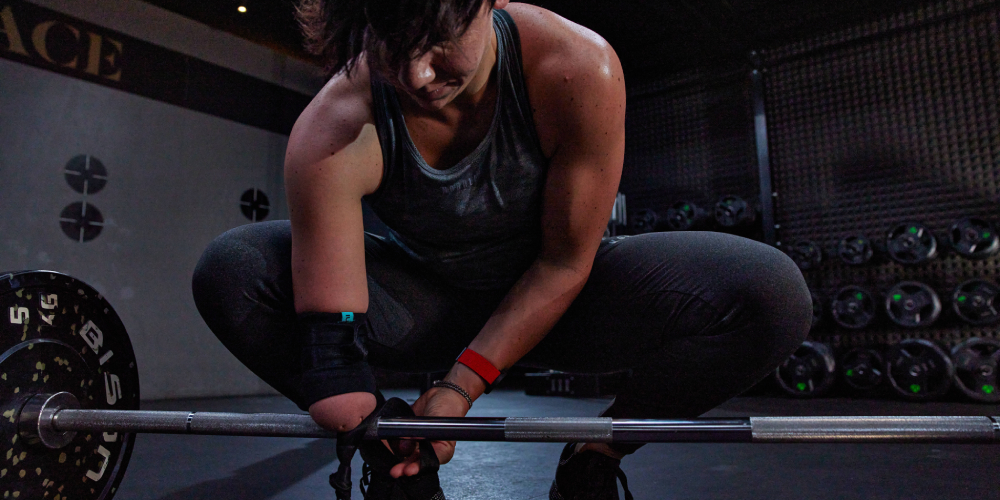
Bex: As a competitive swimmer, feeling like I have to perform can be a barrier. That is, psychologically, very draining. Whereas, if you just go to a nice community class, you go at your own pace.
That’s the whole point of Myzone and the Myzone app as well. That makes a massive difference. It takes a massive weight off my shoulders. Sometimes I just need to move and do something gentle. That definitely lessens the barrier.
On a Eurovision fitness mission
Jo: I used to be that person who goes full-out with exercise or just do nothing – where there’s no in-between. Now I know that you can just go for a walk and that, in itself, is exercise.
Make it fun and add a social element. We walk and listen to anything with a beat, sometimes Eurovision, and we have the best time! Your relationship with movement doesn’t always have to be hardcore.
Bex: Bringing unrealistically high expectations lower makes a big difference. You don’t have to go to the gym for an hour, you can do a few bodyweight exercises at home. Find joy through movement and embrace intuitive movement.
What feels good for your body in the moment? It could be dance, it could be a gentle walk, or it could be a really hardcore spin class! It’s about not forcing yourself, which ultimately gets you to do more.
Find out more about motivation for exercise and heart rate monitors.
Share this
You May Also Like
These Related Stories
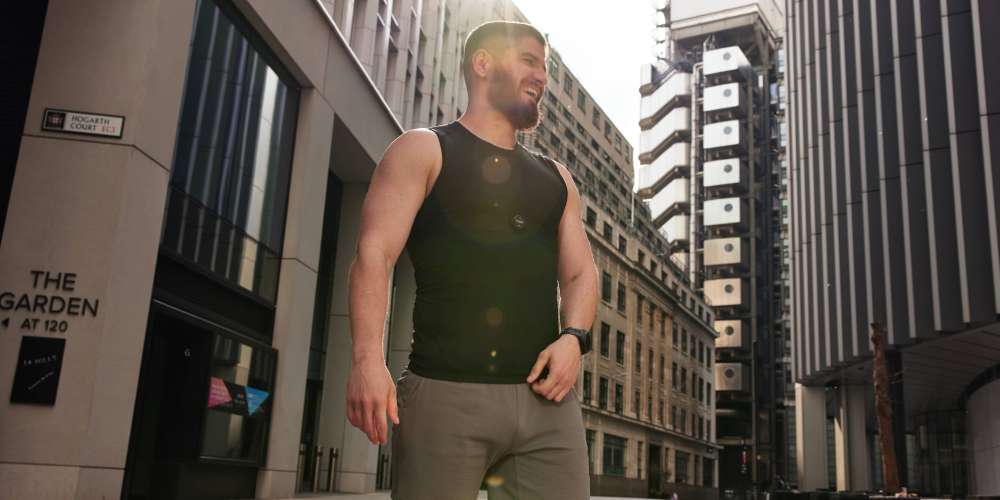
Fitness, family, and a fulfilling life of physical activity
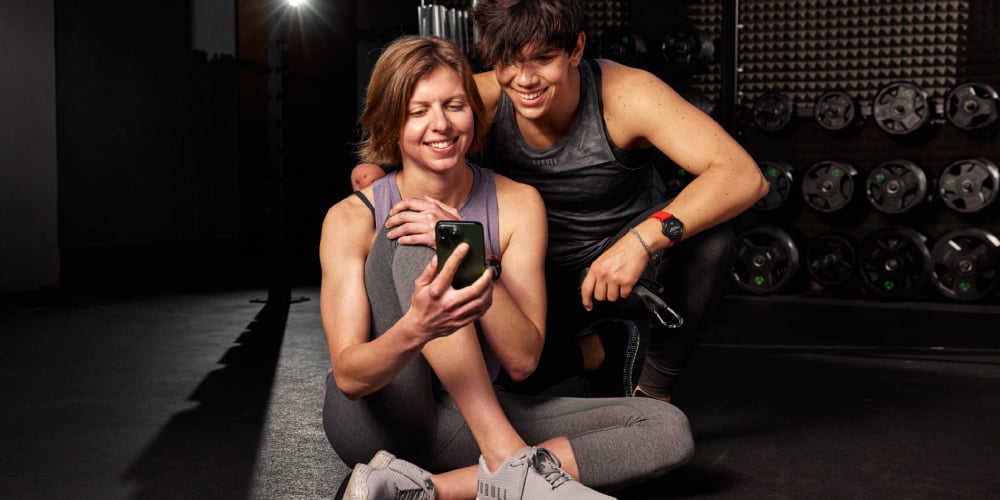
Uniting through a fitness app: The dawn of a new era
